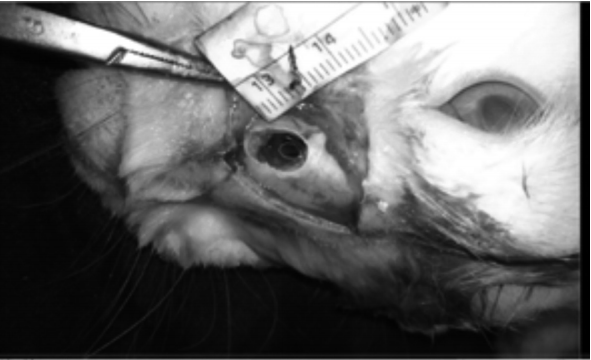Objectives: Adhesion and sinus ostium stenosis are the main causes of failure in the surgical treatment of chronic sinusitis. We investigated the protective effect of topical mesna on adhesion and stenosis after endoscopic sinus surgery.
Materials and methods: In this animal study, maxillary antrostomy was performed on 24 New Zealand rabbits. Saline solution was topically applied to the antrostomy site in the control group. Topical mesna was applied intraoperatively in the single-dose group, and intraoperatively and on postoperative day 3 in the double-dose group. The changes in antrostomy area and histopathological scoring results of the antrostomy sites were evaluated intraoperatively and at postoperative week 8.
Results: Stenosis scores were significantly lower in the double-dose group compared with the single-dose and control groups. A statistically significant reduction in mononuclear cell infiltration was determined in the double-dose group compared with the control group. A statistically significant reduction in cilia loss was observed in the double- and singledose mesna groups in comparison with the control group.
Conclusions: The study showed that the use of double-dose mesna is more effective than saline or single-dose mesna against ostium shrinkage and stenoses, and that it also reduces inflammation at the site of the antrostomy.


_page-0001.jpg)
.png)

